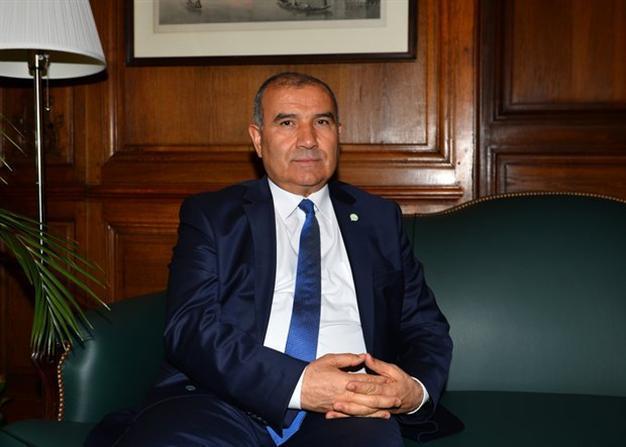Turkey plans to invest $125 bln in energy by 2023: Minister
ISTANBUL

AA photo
Turkey plans to invest $125 billion into energy by 2023, as the country’s energy demands continue to increase tremendously, Turkish Energy Minister Ali Rıza Alaboyun said during a speech at the Atlantic Council Energy & Economic Summit in Istanbul, which was officially started on Nov. 19 with a keynote speech by Turkish President Recep Tayyip Erdoğan.
“Energy demand in Turkey increases 7 percent per annum. To achieve this goal, Turkey is planning to invest $125 billion into the energy sector by 2023,” Alboyun said.
Turkey plans to roughly double its current 72,000 megawatt (MW) energy capacity to 130,000 MW by 2023, he noted, adding the country was planning to diversify its energy mix and was determined to reduce its dependency on natural gas for electricity generation.
“Although the share of natural gas in our installed capacity is 29 percent, its share in electricity generation is 48 percent. This is a clear indication of our dependency on natural gas to generate electricity,” he noted.
In renewable energy, wind power capacity today is 4,200 MW, while it will be 20,000 MW by 2023, according to the minister.
“Utilizing the potential of renewable energy is on the top of our agenda,” he said, adding that to reduce the proportion of natural gas in the installed capacity, the country was also constructing two nuclear power plants and planning a third one.
Turkey’s first nuclear power plant in the southern district of Akkuyu is planned to come online by 2022, with its second plant in the Black Sea province of Sinop following in 2023, said another Energy Ministry official at the summit.
The share of coal power plants in Turkey’s installed power capacity is 29 percent. Only 50 percent of this capacity belongs to the country’s own lignite, while the other 50 percent belongs to coal imported from other countries, said the minister.
He also praised Turkey’s strategic location amid huge energy suppliers and consumers by becoming a part of key pipeline projects, such as the Trans Anatolian Natural Gas Pipeline Project (TANAP).
Alaboyun also noted this year’s “G-20 Energy Ministerial Meeting” was organized for the first time in the G-20’s history under Turkey’s presidency.
“The topics discussed at the G-20 energy ministerial meeting [on Oct. 2 in Istanbul] were also raised on Nov. 18 in Paris at the International Energy Agency Ministerial Meeting,” he added.
Key energy routes on table
Turkey’s strategic position in regional energy geography was praised and the world’s leading energy and economic issues were put on the table during the Atlantic Council Energy and Economic Summit.
Croatian President Kolinda Grabar-Kitarovic noted Turkey and Croatia play a key role in today’s energy distribution projects in her speech.
“Although Croatia is a relatively small country, it makes a contribution to Europe’s energy security through several key pipelines, including the İonia Adriatic Natural Gas Pipeline and Trans Adriatic Pipeline [TAP]. Such projects will enhance the energy connection in southeastern Europe along with the southern and northern energy corridors,” she said, as quoted by Anadolu Agency.
This year’s summit theme, “Building Global Stability and Business Resilience in Volatile Times,” focused on examining business opportunities, economic and energy developments and geopolitical challenges in a region that is currently at the crossroads of history.
The summit, during which the Syrian issue, the recent Iranian nuclear agreement with the West, political chaos in Ukraine and falling energy prices have been put on the table by leading economy and energy players, will continue until its official closing on Nov. 20.
